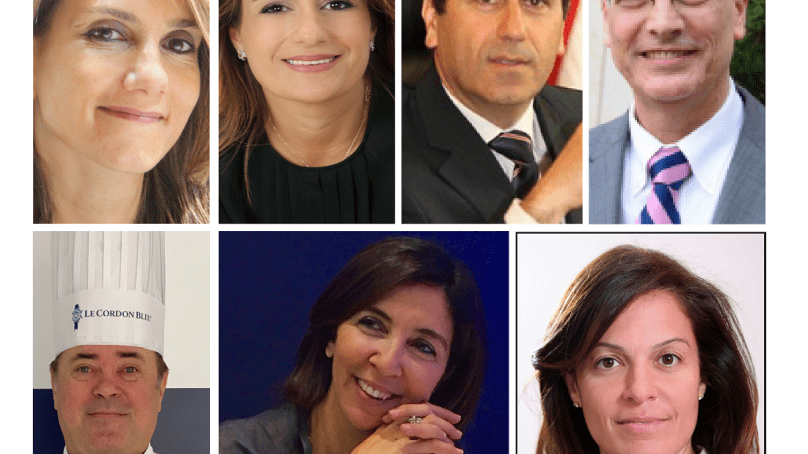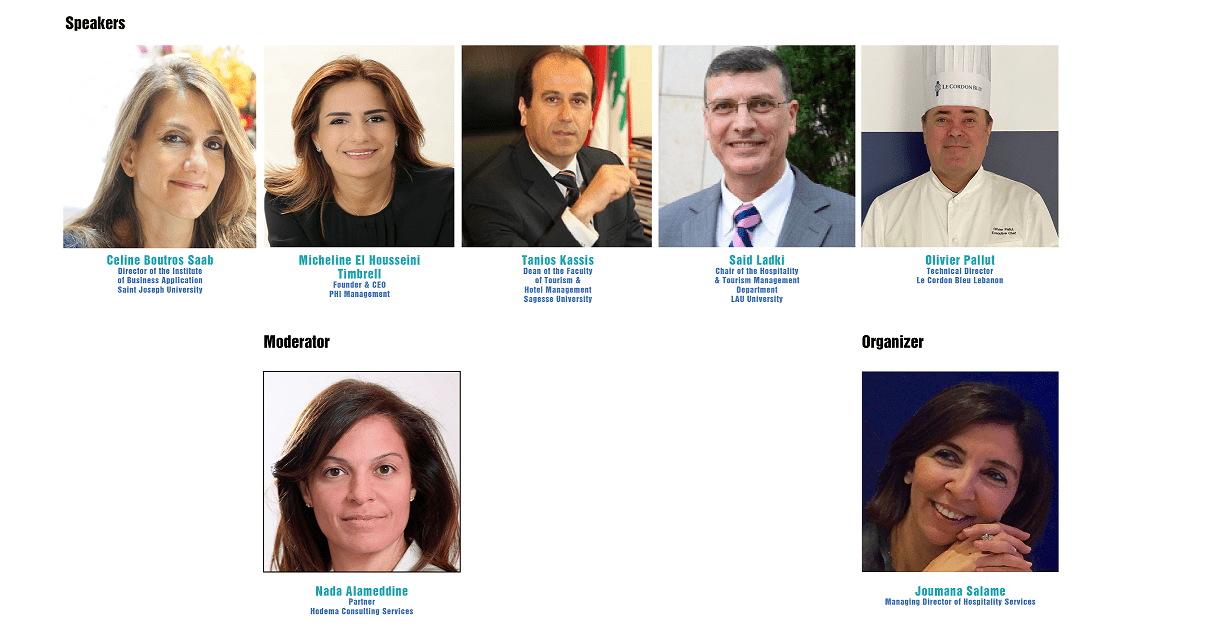Powered by Hospitality News Middle East and funded by the USAID Lebanon Enterprise development (LED) project, Hospitality News Talks held its third virtual roundtable on February 25 — “Hospitality education in Lebanon in 2021 and beyond.” The online session, one of 12 such talks moderated by Hodema Consulting Services, invited a panel of academics to discuss the latest developments in hospitality education and how their respective institutions have been responding to the pressures of Covid-19 as well as challenges specific to Lebanon: currency devaluation, political uncertainty, etc.
The panel included: Celine Boutros, director of the Institute of Business Application, Saint Joseph University; Micheline Housseini Timbrell, founder and CEO of PHI Management; Tanios Kassis, dean of the Faculty of Tourism & Hotel Management, Sagesse University; Said Ladki, chair of the Hospitality and Tourism Management Department, Lebanese American University; and Olivier Pallut, technical director of Le Cordon Bleu Lebanon. Nada Alameddine, partner of Hodema Consulting Services, moderated the session.
Ladki began by saying that Lebanon will continue to produce hospitality talent thanks to a distinguished education system that nurtures multilingualism, adaptability and professionalism. When asked about the impact the economic crisis and the coronavirus pandemic have had on student numbers at LAU, he said: “Overall, we have seen an increase in enrollment at our university. In our department alone, there have been around nine cases of students who were planning to study abroad but decided to stay in Lebanon.”
Kassis spoke about the competitive advantage Lebanon used to have in the region. He explained that while hospitality professionals continue to emerge from Lebanon, other countries in the Arab world are investing in their people more and more. Tourism has become a focal point in countries such as Qatar, Bahrain and Saudi Arabia, so local talent is in demand. Kassis also added how important it is for Lebanese students to obtain experience abroad. “I used to tell students to go outside and work abroad and come back. They need to see something else — other cultures. International exposure is essential.”
At Saint Joseph University, Boutros said that although the practical part of their curriculum has suffered, the shift to online education has been relatively smooth.
“Despite the bad infrastructure in Lebanon, we have been able to increase the quality of the education. We have partnered with foreign professors and overseas institutions.” She also mentioned that the explosion at Beirut Port provided an opportunity for students to put their skills to the test. “We opened a kitchen to provide 500 meals to families affected by the explosion. It allowed our students to engage in a large-scale operation and fulfill an important social duty.”
“Notes can be shared, but you cannot teach cooking sessions online; you have to feel the heat,” said Pallut. The technical director expressed how severely classes at Le Cordon Bleu Lebanon have been impacted over the past year because of the pandemic. He went on to add that although the country is going through a dramatic period, economic revival will come and bring with it many opportunities for chefs to excel in Lebanon. “Lebanon has not been very present in culinary production. There is a demand for it, which is why Le Cordon Bleu established a school here. We aim to educate and inspire.”
Housseini Timbrell mentioned the fact that bad internet connection and a general lack of digital savviness have been tricky for many in Lebanon. However, she said that these unusual conditions have highlighted new ways of sharing information: microlearning, podcasts, webinars, etc. “We will be seeing less and less of the traditional full-day trainings and more three-hour sessions designed to keep students engaged. The ability to concentrate at home is often harder and keeping students’ attention can be tough.” She also said: “Even with rules regulating the employment market in the Gulf, such as Bahrainization, I believe that Lebanese talent is still in demand.
The webinar can be viewed in full here.
The webinar call be viewed in full here. To read the full report and the recommendations of the panel, click here.
The fourth webinar, “The catering and events industries in Lebanon: adapting to a new normal,” will take place on March 4. Click here to register.
To access the full program of Hospitality News Talks webinars, click here.
















